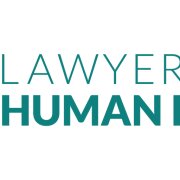Best Constitutional Law Lawyers in Johannesburg
Share your needs with us, get contacted by law firms.
Free. Takes 2 min.
List of the best lawyers in Johannesburg, South Africa
About Constitutional Law in Johannesburg, South Africa
Constitutional Law in Johannesburg, South Africa, deals with the interpretation and implementation of the Constitution of South Africa, which is the supreme law of the land. This body of law provides the fundamental legal framework that ensures the protection of citizens' rights, the separation of powers, and the overarching principles that govern all other laws in the country. Johannesburg, as a major urban center, is a hub for legal activity, influencing both local and national constitutional legal cases. Legal professionals in this field engage in complex issues such as human rights, civil liberties, and the balance of power between different government entities.
Why You May Need a Lawyer
Individuals and organizations might need a lawyer specializing in Constitutional Law for various reasons. Some common situations include:
- Human Rights Violations: Seeking redress or protection from unlawful infringement of fundamental human rights as enshrined in the Constitution.
- Judicial Review: Challenging the constitutionality of laws or governmental actions.
- Discrimination Claims: Addressing discrimination based on race, gender, or other protected characteristics.
- Public Interest Litigation: Engaging in legal action that impacts the broader public interest, such as environmental law cases.
- Constitutional Amendments: Understanding implications and legal processes related to changes in the Constitution.
Local Laws Overview
The Constitutional framework in Johannesburg is part of the broader South African context, where the Constitution guarantees rights such as equality, freedom of expression, and access to information. The Constitutional Court in Johannesburg is the highest authority in interpreting and ensuring compliance with these rights. Local legal professionals often deal with cases involving the Bill of Rights, which protects various civil liberties. The city's policies and ordinances must align with constitutional mandates, ensuring local governments act within constitutionally defined powers.
Frequently Asked Questions
What is Constitutional Law?
Constitutional Law refers to laws that relate to the interpretation, implementation, and amendment of a nation's constitution. In South Africa, it focuses on the rights of individuals and the distribution and exercise of governmental powers.
How does the Constitution affect my legal rights?
The South African Constitution is designed to protect citizens' rights, ensuring equality, dignity, and freedom. It provides the legal foundation for challenging violations and seeking justice.
What role does the Constitutional Court play in Johannesburg?
The Constitutional Court is the highest court in South Africa regarding constitutional matters. It is located in Johannesburg and has the ultimate authority to interpret constitutional provisions and adjudicate related disputes.
Can the Constitution be amended?
Yes, the South African Constitution can be amended, but the process requires significant parliamentary support to ensure that the change reflects a consensus of the represented population.
What are some examples of constitutional rights?
Constitutional rights include the right to equality, freedom of expression, access to justice, privacy, and protection from discrimination, among others.
How can I lodge a constitutional complaint?
You can lodge a constitutional complaint through the appropriate legal channels, often with the assistance of a legal professional, starting with lower courts if necessary before escalating to the Constitutional Court.
What is public interest litigation?
Public interest litigation involves legal action taken to protect or enforce rights affecting the public, often initiated by individuals or groups when government actions threaten constitutional rights.
Can a lawyer help me with a constitutional dispute?
Yes, a lawyer specializing in Constitutional Law can provide valuable guidance, represent you in court, and help navigate the complexities of your case based on constitutional provisions.
Do local laws in Johannesburg comply with the Constitution?
All local laws in Johannesburg must comply with the national Constitution. Legal experts often scrutinize new legislation to ensure constitutional alignment.
What happens if a law is found unconstitutional?
If a law is deemed unconstitutional, it can be invalidated by the Constitutional Court, ensuring that it cannot be enforced as long as it conflicts with the constitutional provisions.
Additional Resources
Those seeking more information on Constitutional Law in Johannesburg should consider reaching out to the following resources:
- South African Human Rights Commission: Offers guidance on human rights protections and complaints.
- Constitutional Court of South Africa: Provides case archives, decisions, and information on constitutional matters.
- Legal Aid South Africa: Assists individuals who require legal representation but cannot afford private attorneys.
- Department of Justice and Constitutional Development: Offers information on ongoing policy developments and educational resources.
Next Steps
If you need legal assistance in Constitutional Law, consider these steps:
- Research: Gather as much information as you can about your issue and how it relates to constitutional rights.
- Consult a Lawyer: Seek advice from a legal professional specializing in Constitutional Law to understand your legal standing and options.
- Gather Documentation: Organize relevant documents to support your case, including any evidence of rights violations or discrimination.
- Proceed Legally: If advised, initiate legal proceedings with the help of your lawyer to address your concerns in the appropriate legal venue.
Lawzana helps you find the best lawyers and law firms in Johannesburg through a curated and pre-screened list of qualified legal professionals. Our platform offers rankings and detailed profiles of attorneys and law firms, allowing you to compare based on practice areas, including Constitutional Law, experience, and client feedback.
Each profile includes a description of the firm's areas of practice, client reviews, team members and partners, year of establishment, spoken languages, office locations, contact information, social media presence, and any published articles or resources. Most firms on our platform speak English and are experienced in both local and international legal matters.
Get a quote from top-rated law firms in Johannesburg, South Africa — quickly, securely, and without unnecessary hassle.
Disclaimer:
The information provided on this page is for general informational purposes only and does not constitute legal advice. While we strive to ensure the accuracy and relevance of the content, legal information may change over time, and interpretations of the law can vary. You should always consult with a qualified legal professional for advice specific to your situation.
We disclaim all liability for actions taken or not taken based on the content of this page. If you believe any information is incorrect or outdated, please contact us, and we will review and update it where appropriate.
















